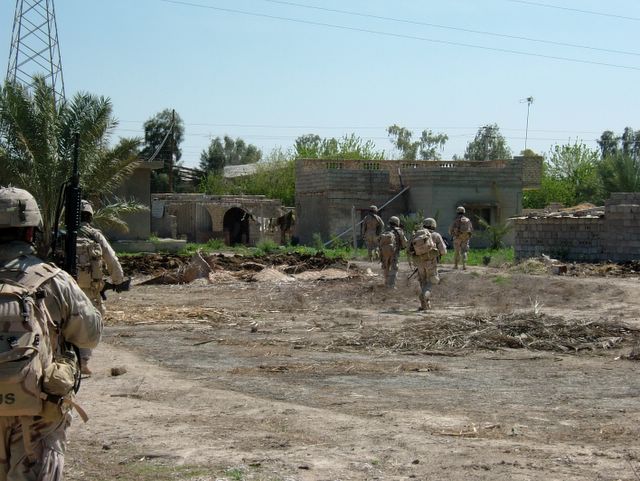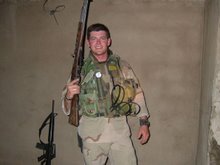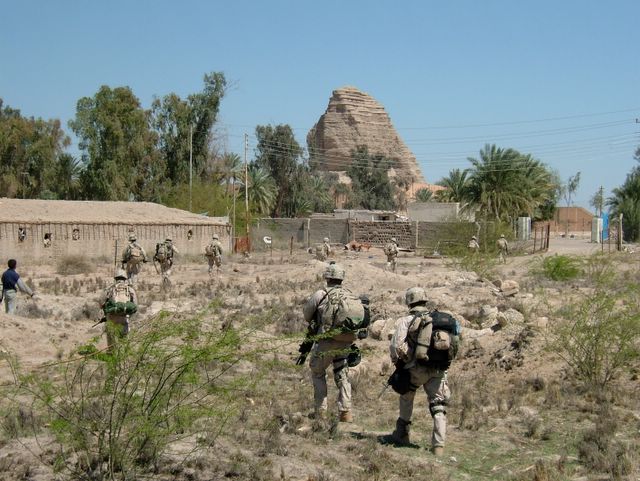International Herald Tribune
(http://www.iht.com/bin/print.php?id=6263112)
By Jane Perlez
Thursday, June 21, 2007
LONDON: Increasingly, Muslim women in Britain take their children to school and run errands covered head to toe in flowing black gowns that allow only a slit for their eyes.
Like little else, their appearance has unnerved Britons, testing the limits of tolerance in this stridently secular nation. Many veiled women say they are targets of abuse. At the same time, efforts are growing to place legal curbs on the full Muslim veil, known as the niqab.
The past year has seen numerous examples: A lawyer dressed in a niqab was told by an immigration judge that she could not represent a client because, he said, he could not hear her. A teacher wearing a niqab was told by a provincial school to go home. A student who was barred from wearing a niqab took her case to the courts, and lost. In fact, the British education authorities are proposing a ban on the niqab in schools altogether.
David Sexton, a columnist for The Evening Standard, wrote recently that Britain has been "too deferential" toward the veil. "I find such garb, in the context of a London street, first ridiculous and then directly offensive," he said.
Although the number of women wearing the niqab has increased in the past several years, only a tiny percentage of women among Britain's two million Muslims cover themselves completely. It is impossible to say how many exactly.
Some who wear the niqab, particularly younger women who have taken it up recently, concede that it is a frontal expression of Islamic identity, which they have embraced since Sept. 11, 2001, as a form of rebellion against the policies of the Blair government in Iraq and at home.
"For me it is not just a piece of clothing, it's an act of faith, it's solidarity," said a 24-year-old program scheduler at a broadcasting company in London, who would allow only her last name, Al Shaikh, to be printed, saying she wanted to protect her privacy. "9/11 was a wake-up call for young Muslims," she said.
At times she receives rude comments, including, Shaikh said, when a woman at her workplace told her she had no right to be there. Shaikh said she planned to file a complaint.
When she is on the street, she often answers barbs. "A few weeks ago a lady said: 'I think you look crazy.' I said: 'How dare you go around telling people how to dress,' and walked off. Sometimes I feel I have to reply. Islam does teach you that you must defend your religion."
Other Muslims find the niqab objectionable, a step backward for an immigrant group that is under pressure after the terror attack on London's transit system in July 2005.
"After the July 7 attacks, this is not the time to be antagonizing Britain by presenting Muslims as something sinister," said Imran Ahmad, author of "Unimagined," an autobiography of growing up Muslim in Britain, and the head of British Muslims for Secular Democracy. "The veil is so steeped in subjugation, I find it so offensive someone would want to create such barriers. It's retrograde."
Since South Asians started coming to Britain in large numbers in the 1960s, a small group of usually older, undereducated women have worn the niqab. It was most often seen as a sign of subjugation.
Many more Muslim women wear the headscarf, called the hijab, covering all or some of their hair. Unlike in France, Turkey and Tunisia, where students in state schools and female civil servants are banned from covering their hair, British Muslim women can wear the headscarf, and indeed the niqab, almost anywhere, for now.
But that tolerance is eroding. Even some who wear the niqab, like Faatema Mayata, a 24-year-old psychology and religious studies teacher, agreed there were limits. "How can you teach when you are covering your face?" she said, sitting with a cup of tea in her living room in Blackburn, a town in the north of England, her niqab tucked away because she was within the confines of her home.
She has worn the niqab since she was 12, when she was sent by her parents to an all-girls boarding school. The niqab was not, as many Britons seemed to think, a sign of extremism, she said. The niqab, to her, was about identity. "If I dressed in a Western way I could be a Hindu, I could be anything," she said. "This way I feel comfortable in my identity as a Muslim woman."
No one else in the family wore the niqab. Her husband, Ibrahim Boodi, a social worker, was indifferent, she said. "If I took it off today, he wouldn't care."
When she is walking, she is often stopped, she said. "People ask, 'Why do you wear that?' A lot of people assume I'm oppressed, that I don't speak English. I don't care, I've got a brain."
Some commentators have complained that mosques encourage women to wear the niqab, a practice they have said should be stopped. At the East London Mosque, one of the largest in the capital, the chief imam, Abdul Qayyum, studied in Saudi Arabia and is trained in the Wahhabi school of Islam. According to the community relations officer at the mosque, Ehsan Abdullah Hannan, the imam's daughter wears the niqab.
At Friday prayers recently, the women worshipers were crowded into a small upstairs windowless room away from the main hall for the men.
A handful of young women wore the niqab and spoke effusively about their reasons. "Wearing the niqab means you will get a good grade and go to paradise," said Hodo Muse, 19, a Somali woman. "Every day people are giving me dirty looks for wearing it, but when you wear something for Allah you get a boost."












